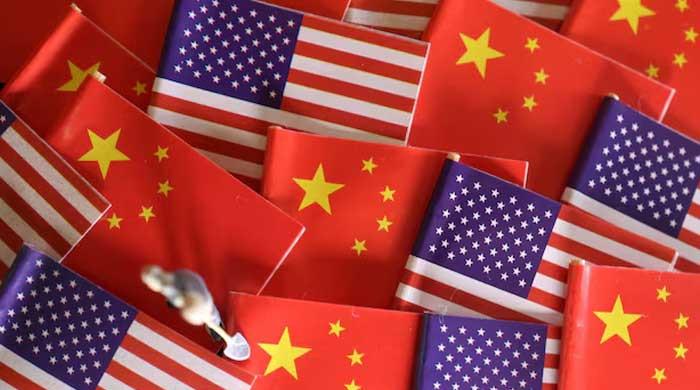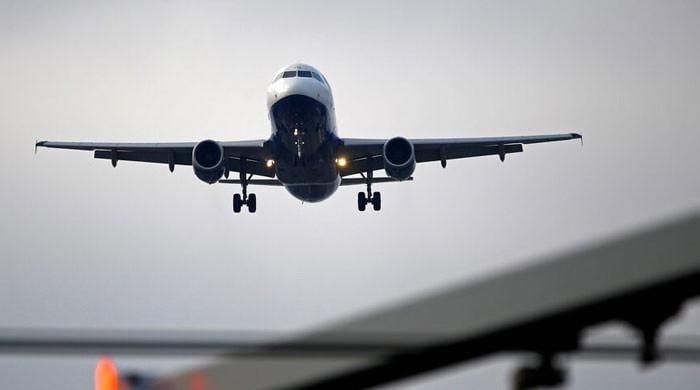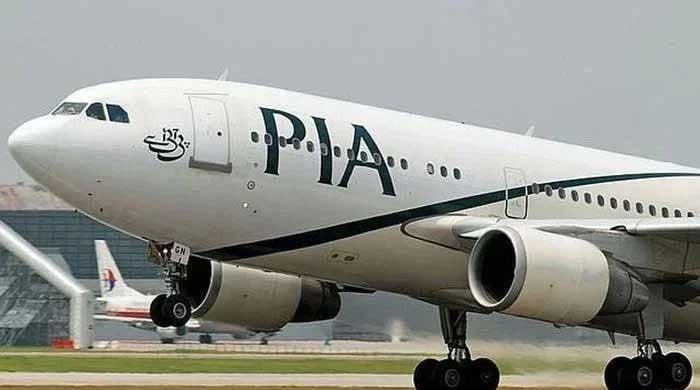PIA wins landmark duress case at UK Supreme Court
The ruling for PIA means that it will not have to pay commissions retrospectively for the fuel surcharge part of the tickets
August 18, 2021
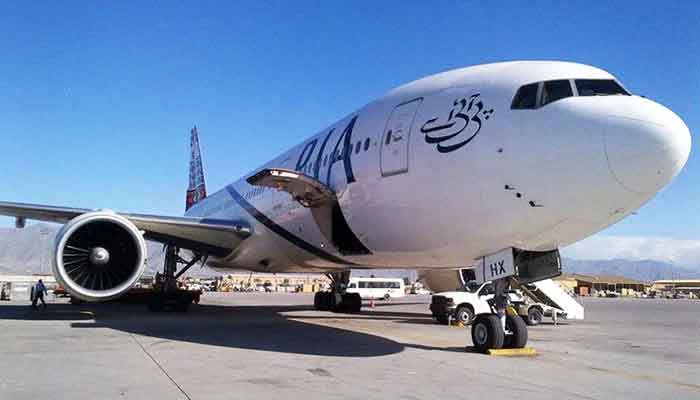
- Top UK court rules in favour of Pakistan International Airlines in case brought by a travel agent.
- The firm argued that it was subjected to economic pressure in 2012 and forced into signing a new contract without paying the commission.
- The case is of such serious nature that even the governments of Russia and Ukraine had intervened in the matter.
LONDON: The Pakistan International Airlines (PIA) has won a landmark case at the Supreme Court of the United Kingdom after five judges unanimously ruled that Pakistani national airliner was right to use lawful act under economic duress on a British Pakistani travel agent while enforcing a new contract for sales of tickets to Pakistan in 2012.
The UK's top court has ruled in the landmark decision that the doctrine of a lawful act of duress is of narrow scope and it did not apply in the case brought against Pakistan International Airlines Corporation (PIAC) by a Birmingham based British Pakistani travel agent.
Farani Taylor Solicitors represented PIA in the long-running case against the claimant Times Travel — a small family-owned travel agency in Birmingham.
According to English law, the economic duress occurs when illegitimate economic pressure is exerted so that the weaker party has no other practical option but to agree to enter into a contract or accept particular terms.
In the Pakistan International Airline Corporation v Times Travel case, the question before the five judges was to decide whether economic duress can arise in a situation where a party makes lawful acts or threats in support of a demand which it genuinely believes it is entitled to make.
The Birmingham-based firm argued that it was subjected to economic pressure in 2012 and forced into signing a new contract without paying the commission – setting out the claim for payment of a huge sum of commission retrospectively.
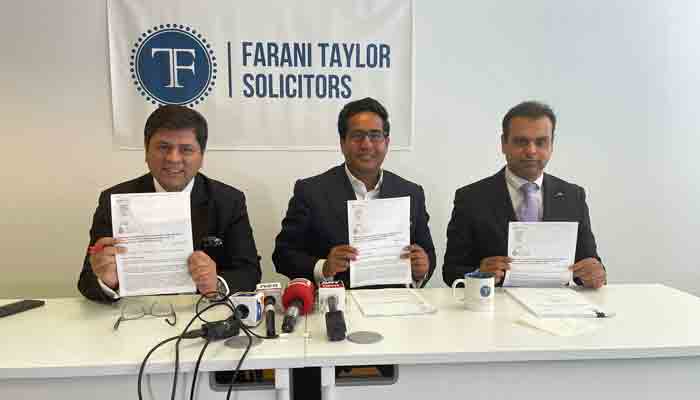
After the judgment was released, Managing Partner Farhan Farani of Farani Taylor Solicitors told Geo and The News that the impact of the judgment is enormously huge in English Law. He said the case is of such serious nature that even the governments of Russia and Ukraine had intervened in the matter as this judgment will have an impact on their case as well.
He added: “This decision effectively resets the boundaries of duress and will have major ramifications for commercial negotiations. The ruling is a defining moment for commercial negotiators.”
The PIA’s lawyers had argued in the Supreme Court before five justices that PIA acted lawfully when it terminated its contract with its UK-based Pakistani agents, offering them a new contract. The agents were claiming commissions on fuel surcharge as part of the tickets they had sold.
The ruling for PIA means that it will not have to pay commissions retrospectively for the fuel surcharge part of the tickets.
The dispute
The case concerned a dispute between PIA and Times Travel relating to a contract both parties entered into in 2008 as the agency agreed to act as a ticketing agent for the Pakistani national airline.
At that time, PIA was the only airline operating direct flights between the UK and Pakistan and Times Travel, like dozens of other Pakistani travel agents, relied completely on the sale of flight tickets to the members of Birmingham’s Pakistani community as well as anyone else who would call the travel agency to book a ticket to the South Asian country.
In 2012, as online business started taking over and PIA’s reliance on around 60 travel agents lessened, issues started when the airline announced to terminate contracts with British Pakistani travel agents – offering them new terms and conditions. Several travel agents refused to accept new contracts, initiated legal claims and argued that PIA owed them commission retrospectively – in the tunes of tens of millions of Pounds.
However, Times Travel accepted the new contract which carried a waiver by Times Travel of its claims for unpaid commission under the prior arrangements. The travel agency accepted and signed the new contract, according to the court papers.
However, two years later in 2014, Times Travel sued PIA at the London High Court claiming to recover unpaid commission and other payments which it claimed PIA owed legally.
In the first round, the High Court ruled that Times Travel was entitled to avoid the contract with PIA on the grounds of economic duress – which meant that PIA acted unlawfully to force the travel agent into a new contract while ignoring terms of the previous contract.
The PIA went to the Court of Appeal against the decision where its appeal was allowed. The Times Travel then launched an appeal at the top UK court.
In the 2019 judgment in favour of the PIAC, Lord Justice David Richards at the Court of Appeal relied on the legal argument that PIA was entitled to apply economic pressure in support of a demand which it genuinely believed it was entitled to make, regardless of whether it had reasonable grounds for the belief.
The Court of Appeal argument stressed that PIA is able to - and entitled to – bring about the economic pressure because of it its position as a monopoly supplier of air travel tickets for Pakistan while dealing with travel agents.






